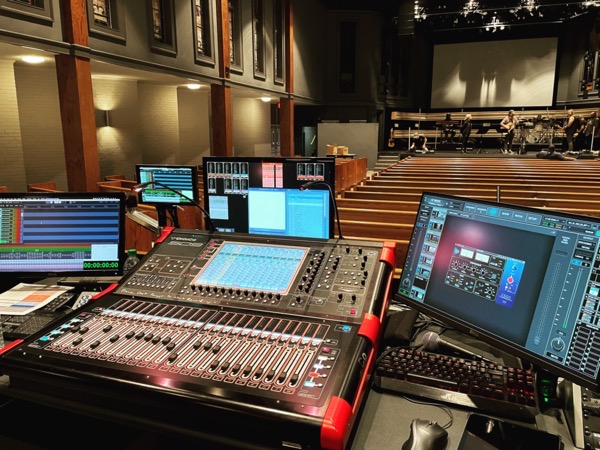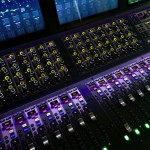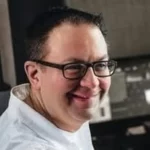
Simple Methods for Building Audio Skills Most Church Sound Engineers Neglect
I say this over and over and will continue saying it: Mixing is NOT a technical discipline. It’s a craft. It’s an art. If anything, mixing is a musical discipline. Knowledge and information are helpful, but on their own they’ll only take so you so far. So here are three methods I’ve utilized over the course of my career and continue to utilize to master the craft of audio.
1. One-on-One Training & Mentoring
One-on-One training is, in my opinion, one of the best ways to improve, if not THE best way. I got my first taste of this as a studio intern many many years ago, and I probably would not have a career in audio if it hadn’t been for that one-on-one time. You can definitely learn from articles, books, and videos, but in my experience they are nowhere near as effective as having someone right there who can help you and guide you and answer your questions. I think this is becoming even more the case as the number of books, videos, and articles available continues to grow.
Unfortunately, a large number of the well meaning engineers creating this content simply don’t have much experience, and that experience is often pretty limited. In many cases it’s also evident to experienced engineers like myself that they haven’t had much or sometimes any one-on-one training or mentoring, either.
This is a big reason why I provide audio training to churches around the country now. I hear from too many engineers to count how they’ve never had the opportunity to work alongside an experienced engineer. That doesn’t have to be you, though. Are you ready to get some one-on-one help for yourself and your audio team? Let’s chat.
2. Studying Your Work
One-on-one training is powerful, but one thing still isn’t going to help you develop your skills. Another great way to improve costs nothing, and that’s to study your own work.
For as long as I can remember, I have been going back and listening to my own board mixes from services, shows, and other live events. It is so ingrained in what I do that I don’t even think about it now. But this is something I find most live sound engineers aren’t doing. I find a lot of engineers aren’t even recording things on a regular basis.
My tendency to do this might come out of the recording world. I think it’s a little more natural to do this there because you end up with a final product that goes out into the world you can listen to at a later date with relative ease. Studio workflows are also very repetitive in nature as you play things over and over again.
Live sound is a bit of a different animal, though. Everything happens in real time, and we mix some of these events by the seat of our pants. We don’t have time to really evaluate how we’re doing in the same way a studio engineer does because we are stuck in the moment while mixing.
So start recording your board mixes and listen back to them afterwards. Make notes–mental or written–on what worked and what didn’t work and start implementing things the next time you’re behind the console. This doesn’t have to be a complicated process. I prefer getting a feed directly from the console, but sometimes I just stick my phone on the top of the console’s meter bridge and record. In some ways, this can be a better representation of what the room was actually sounding like, and I know touring engineers who evaluate their work this way.
When you’re listening back to a live board mix, I suggest you focus on the overall balance of things first and foremost. Depending on room acoustics and PA tuning, the tonal balance in some board mixes can be difficult to evaluate. That tonality can be helpful for PA evalation, but that’s another story. So focus primarily on overall balance: Is everything sitting good or are some instruments sticking out too much or too little in places? Does it need more reverb? Does it need less reverb? Do you need to carve more frequency space for particular instruments? Can you hear everything you’re suposed to or are some things getting buried? These are all things you can start to evaluate from your board mixes which can guide you on areas to focus on when you’re mixing.
3. Practice Practice Practice
If mixing is a musical discipline, that means you need to practice mixing just as any other musician needs to practice their own instrument. If you are only practicing when a band is on stage, you are going to have a very difficult time in growing your skills. Virtual soundcheck was made for this, though.
Virtual soundcheck was a revolution for my live sound mixes and for many of the engineers I served with while I was on church staff. It remains a big part of my workflow when I’m mixing for clients as well as when I’m training volunteers and staff engineers. Here are a couple of simple ways to add it to your weekly workflow:
For starters, use virtual soundcheck after your mid-week rehearsal. Take a 10-15 minute break after rehearsal, and then come back in and work in virtual soundcheck. You can even come back in within the next day or two. Then just spend an hour or so on things and see where you’re at. I’ve been doing this for years and continue to do it whenever I have the option. It has helped me improve, and I’ve watched as it has helped many of the volunteers I’ve worked with improve.
No mid-week rehearsal? No problem. Record your services every week which, by the way, you should probably be doing anytime anyone is performing on stage. Then come in a day or two before the next time you’re on and pull up that recording to work on refining things. I did this all the time when I was doing fly-dates with Christ Fellowship’s campuses in south Florida. Their bands were fairly constant so I would use recordings from previous visits to polish the mixes and prep for services when I came in the day before. I also utilize this approach whenever possible when I’m working with a new client.
Another way to use virtual soundcheck is to come in a little early on the day of your services. Just come in 20-30 minutes early and pull up your recording from rehearsal or the last time you were on and get to work. I do this all the time as a way to soundcheck before the band soundchecks.
Finally, record your final rehearsal and use it before doors open to do a little last minute refinement. This actually saved me at a couple of recent FOH gigs. I also know engineers who set their consoles up so they can do this in headphones while people are walking in and walk-in music is playing in the room and the halls.
Now, the typical instinct with virtual soundcheck in all these cases is to refine the basic, static mix, but you can do a lot more with virtual soundcheck. In fact, don’t just focus on putting faders in the “right spots” and getting great EQ/compressor/reverb settings. Make sure you also focus on how you’re going to actually mix the songs. Experiment with your fader moves and transitions. Get a feel for how much to push things and pull things back and when to do it in the song.
So, have you utilized any of these methods to improve your skills? How have they worked out? Where would you like to improve this year? Please let me know in the comments.

 Next Post
Next Post


